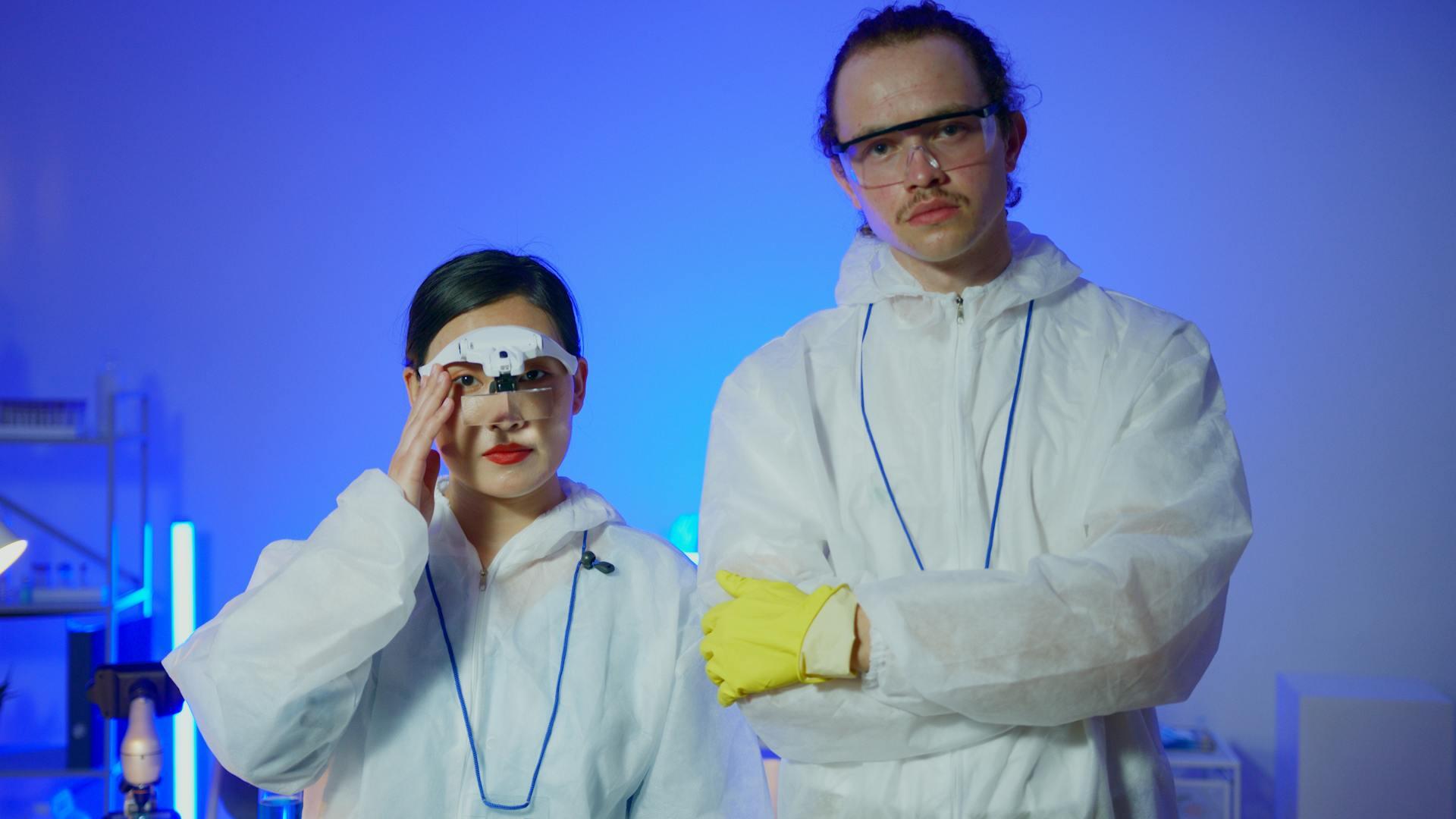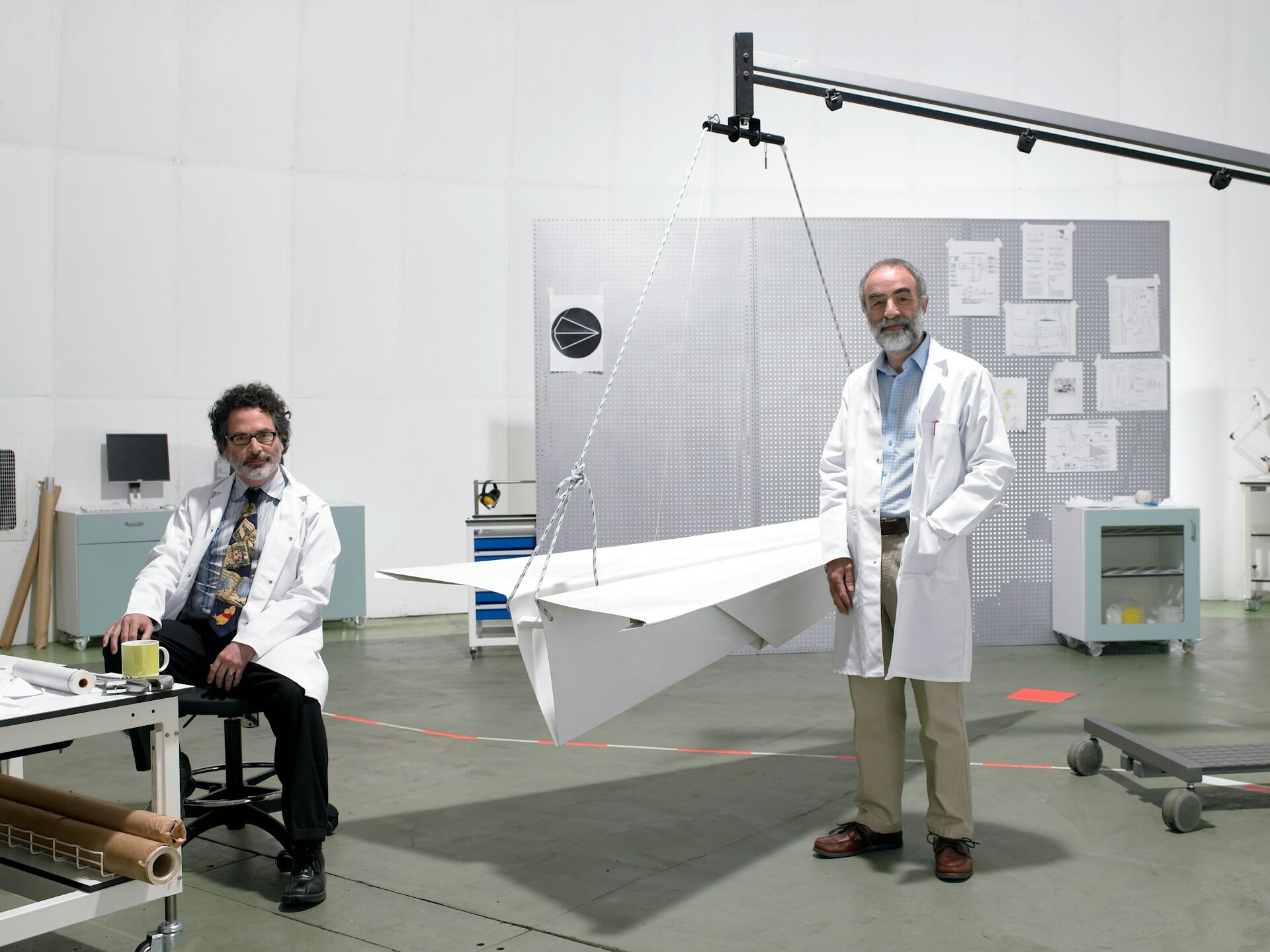Few things are more important than physics. It is the study of the universe’s fundamental laws and the world and universe around us. It’s a field that delves into everything from the tiniest subatomic particles to the largest galaxies.
Beyond its theoretical functions, physics also opens doors to a wide variety of careers. Studying physics shows an excellent level of aptitude and intelligence as well as an understanding of things like analytics and science. For students or individuals pondering what to do after studying physics, the possibilities are both exciting and diverse – there are more options than ever. This guide will explore the different career paths available, the skills and degrees needed, and even provide a few tips on how to break into the industry.

What Is a Physicist and What Do They Do?
At its core, a physicist is someone who seeks to understand the physical world. They explore how things move, interact, and function, using mathematics and experiments to explain phenomena. But what does a physicist do in practice? The answer depends on the type of physics they specialize in. Some focus on theoretical work, developing mathematical models, while others are hands-on experimentalists testing hypotheses in labs.

Physicists are employed in a range of industries from academia and government research labs to private companies and healthcare. So many of the medical diagnostic tools we use today rely heavily on physics and this means that skills in the field are in demand by healthcare companies. They're also some of the biggest employers out there.
It is also important to know that if you have studied physics at university, your job title won’t necessarily be “physicist” and there are a lot of other roles out there that involve the subject. It is possible that you'll end up working in a totally different field and the day in the life of a physicist can vary massively.
Types of Physics and Career Paths
Physics is a huge field. Some people would say that physics is involved in everything and studying it certainly opens up a spectrum of career paths. Some roles are highly specialized, while others apply physics principles in unexpected ways. Below are some of the most common types of physics and the career opportunities they lead to.
Theoretical Physics
Theoretical physicists work on the cutting edge of knowledge, crafting mathematical models to explain phenomena like black holes, quantum mechanics, or the origin of the universe. These jobs are often research-intensive and typically found in academia or government labs.
Experimental Physics
Experimental physicists test theories and explore new phenomena using sophisticated equipment. They might design experiments in particle accelerators or work in labs creating new materials. This field blends creativity with technical skills.
Medical Physics
Medical physicists apply physics to healthcare, ensuring that radiation treatments for cancer are safe and effective or optimizing imaging technologies like MRIs and CT scanners. Physics degree jobs in this area often require further specialization, such as a master’s or doctorate in medical physics.
The medical physics market is expected to grow at a compound annual growth rate (CAGR) of 6–7% from 2024–2029
Applied Physics
Applied physicists take theoretical concepts and turn them into real-world solutions. They work on innovations like renewable energy systems, semiconductors, or even aerospace technologies. These roles often overlap with engineering and are popular in private industry.
Astrophysics
For those fascinated by the cosmos, astrophysics offers a chance to study stars, planets, and galaxies. Astrophysicists may work for space agencies, research institutions, or observatories. Some people are born with a fascination for the great beyond and this can be an opportunity for satisfying employment.

In the modern age, we’re seeing more and more private space companies launching which also provides many more options to work in the field of space. The US and UK are hubs for this, so there are many opportunities in English-speaking countries.
Condensed Matter Physics
This branch examines the properties of solids and liquids, leading to advancements in electronics, materials science, and nanotechnology. Careers in condensed matter physics are prevalent in both academia and tech companies.
What Can You Do with a Physics Degree?
One of the most frequent questions students ask is: “What jobs can you get with a physics degree?” The answer depends on the level of education, the skills acquired, and individual interests.
Entry-Level Physics Jobs
With a bachelor’s degree, physics major jobs might include roles as lab technicians, data analysts, or research assistants. Entry-level positions often serve as stepping stones to more advanced careers or graduate studies.
Advanced Roles
A master’s or Ph.D. opens the door to higher-level positions, such as leading research projects, developing technology, or teaching at the university level. Physicist jobs in academia or specialized industries usually require advanced degrees.
Careers Outside Traditional Physics
A physics degree also equips graduates with transferable skills, such as critical thinking, problem-solving, and data analysis. These skills make physics majors attractive candidates for roles in finance, programming, consulting, and even patent law.

Studying physics and getting a high grade as a physics major can help people to prove to employers that they are capable of understanding some advanced concepts and they are also able to stick at their studies and achieve something over a long period of time. These can be attractive propositions to any employer and physics does not limit somebody to a niche career – there are thousands of potential routes to take.

Helpful Key Skills for Physics Careers
To thrive in physics careers, a combination of technical expertise and soft skills is essential. Beyond just having studied the subject and majored in physics at college, there are a lot of other skills people can potentially learn in order to put themselves ahead in the hunt for a career.
Programming
Familiarity with programming languages like Python, MATLAB, or C++ is crucial for analyzing data and running simulations and there is a lot of crossover with other industries and skills.
Communication
Physicists must explain complex concepts clearly, whether through research papers, presentations, or team collaboration. While there is likely to be a lot of solo work, you’ll need to be able to communicate effectively too.
Problem-Solving
The ability to tackle challenging problems creatively is at the heart of physics work but there are very few jobs where it is not helpful. Employers will love seeing proof that candidates can solve problems.
How to Prepare for a Career in Physics
The journey to a physics career starts with education and builds through experience. Even in the early days of a degree, there is every chance that you will be considering how to prepare for a career and the sort of things that are involved in a potential career path. This is especially helpful if you already have an idea of the sort of role you wish to go into.
College Physics Degrees
The foundation of most physics careers is a bachelor’s degree in physics or a related field. Coursework typically covers mechanics, electromagnetism, quantum physics, and thermodynamics, but there are so many other studies that can be tied into a physics degree, too
Graduate Studies
Many physics-related careers, especially in research or specialized fields like medical physics, require a master’s or Ph.D. Graduate studies allow students to dive deeper into their chosen area of physics and gain hands-on experience.
Internships and Research
Internships, summer research programs, or working as a research assistant are invaluable for gaining real-world experience and networking with professionals. They can be pretty competitive but internships are a chance to improve your resume and showcase the experience you already have in the physics industry. A lot of internships also can lead to permanent roles which makes them an even more viable option.

Internships may be unpaid, which can be frustrating. People need to put the time in to get this experience and they may not get any financial benefits in the short term. But this can be a long game which means that putting the effort in can yield results further down the line.
Finding Jobs for Physics Majors
When it’s time to look for work, there are plenty of resources and strategies to help physics graduates find their ideal job. In terms of the online options there are websites like Physics Today Jobs and Indeed often list a variety of positions, from entry-level physics jobs to specialized roles. Companies such as aerospace firms, tech giants, and energy providers frequently post openings tailored to physics degrees.
Organizations like the Institute of Physics (IOP) or the American Physical Society (APS) offer career resources, networking opportunities, and job listings, and many of these are more specific to the industry. Attending industry-specific career fairs is also a great way to meet potential employers, learn about the types of physics jobs available, and make connections in the field.
Networking is always going to be important when it comes to finding a role. This might mean building relationships with industry pros or even volunteering and attending events in your local area.
Improve Your Physics Knowledge with Superprof
Whether you have already graduated or you are currently studying physics or a related field, Superprof can help. We have a huge number of different tutors who can help you in the fields of science and physics and allow you to work on the specific areas that you want to. For additional local support, you can search for physics tutors near me.
As well as working on the fundamental knowledge that is needed, a lot of physics tutors will also be able to offer advice on careers and the industry itself. Check out the profiles here on Superprof and find a tutor that you’d like to work with! If you are based in a different region, you might also consider checking out physics tutors near me for personalized support.
Summarize with AI:
























